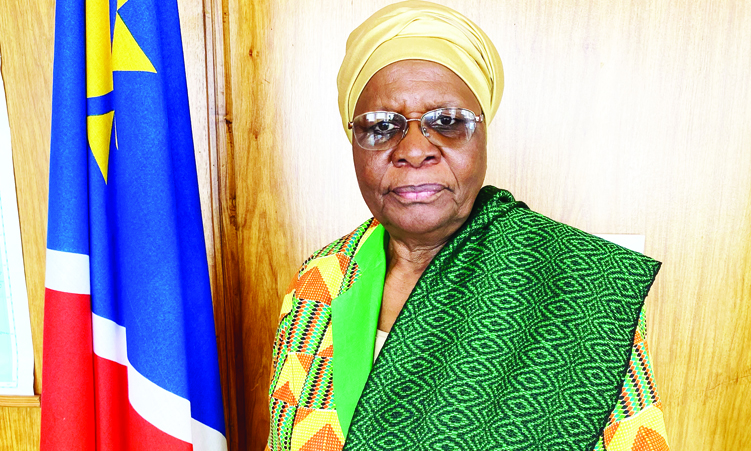Vice president Netumbo Nandi-Ndaitwah says a desalination pipeline can be developed as a means of addressing water challenges in the Kunene region.
Nandi-Ndaitwah made these remarks at the 11th edition of the Opuwo Annual Trade Fair on Friday.
Her suggestion comes after Opuwo Town Council chief executive Matjandjara Tjihuura-Katurota informed her of the poor water quality and scarcity at the town.
“Pipelines can be developed as another way of making sure that we bring water closer to the people,” she said.
She added that Namibia was lucky to be a coastal country and investments can be made to bring water inland through pipelines.
“I always say, if Europe over the years were able to get gas from Russia to the whole of Europe, would it not be possible for us to have a desalination pipeline that can bring water into the interior? We just need to have a clear vision, be very strategic and bring all our brains together so that we can do all the technical work and then proceed to give the best service to our people.”
In 2022, Nandi-Ndaitwah supported founding president Sam Nujoma’s suggestion that Namibia should consider bringing water from the Congo River in the Democratic Republic of Congo to Oshikango to boost the country’s agricultural sector.
Last month, Popular Democratic Movement (PDM) leader McHenry Venaani promised that if elected as head of state this year, he will have desalinated water pumped from the Atlantic Ocean to the Kunene and Omusati regions.
Venaani said this at a PDM meeting at Okalongo in the Omusati region.
He said the water would be desalinated and pumped from Cape Fria to the Calueque-Oshakati water canal.
“I will put the biggest pipe from Cape Fria. We will desalinate the water. We take the salt out,” Venaani said.
WATER SCARCITY
Tjihuura-Katurota said surrounding communities are affected by water scarcity and poor water quality, which also discourages investors.
“However, we have engaged with a consultant and experts who did a master plan for us and we have identified projects that need to be funded to mitigate the water scarcity in Opuwo,” Tjihuura-Katurota said.
According to recent data by the Namibia Statistics Agency, Opuwo has a population of 38 824 residents, with 23 934 residing at Opuwo Urban and 14 894 based at Opuwo Rural.
Tjihuura-Katurota said the water infrastructure serving Opuwo is more than 30 years old and has never been replaced or expanded.
“This has caused scarcity where the demand for water is higher than the supply, creating a gap and pressure in the supply. According to our statistics, we are at least supposed to pump 180 cubic metres per hour but we are only pumping 130 cubic metres per hour at the moment,” she said.
Tjihuura-Katurota added that ageing infrastructure also results in water leakages.
“Therefore, we are proposing that we need a pipeline that will run from the main water reservoir to communities because these people are not on the grid.”
She said this means up to 300 village residents have no access to water.
According to Tjihuura-Katurota, the construction of a pipeline will cost about N$4,7 million.
“We also need water tankers that can be used to store and supply water to the residents. Council is also busy with the drilling of two boreholes, but for them to be connected, we will need N$13 million,” Tjihuura-Katurota said.
Other suggested projects are the construction of an earth dam to capture water from rivers passing through the town.
GREEN HYDROGEN
Nandi-Ndaitwah called on Namibians to take part in new developing industries such as green hydrogen.
“With the new industries coming up, as a nation we must position ourselves to be part of development of those industries. Hence the need for strong and clear local content laws.”
She said Namibians cannot afford to be left behind and not fully benefit from their natural resources.
Stay informed with The Namibian – your source for credible journalism. Get in-depth reporting and opinions for
only N$85 a month. Invest in journalism, invest in democracy –
Subscribe Now!






